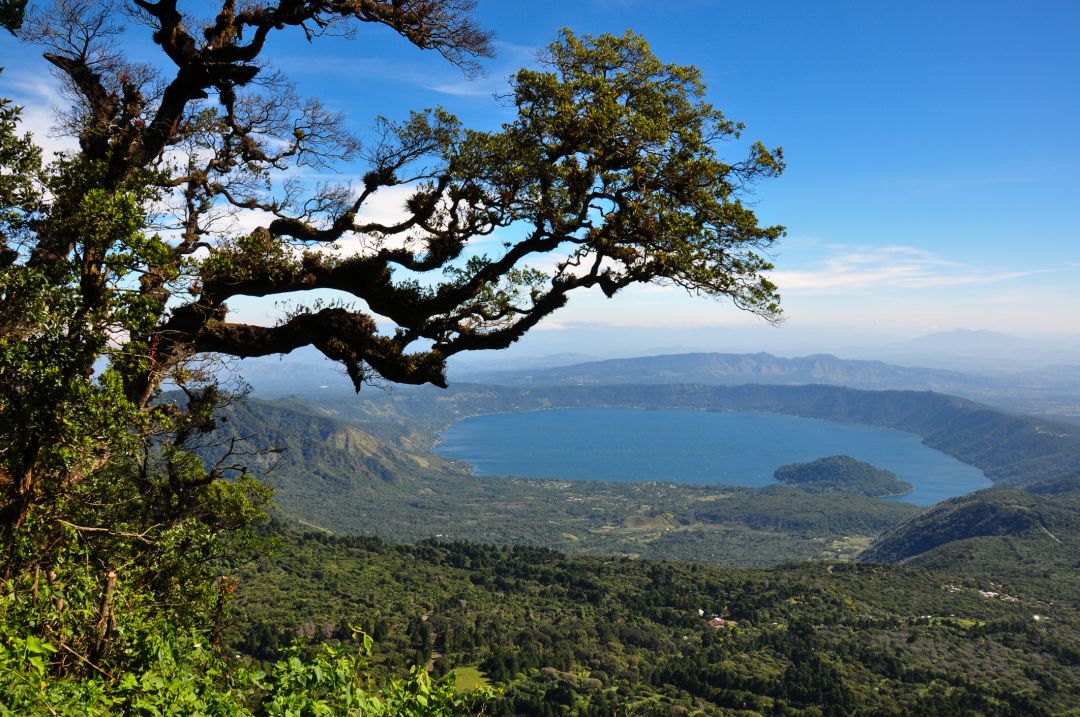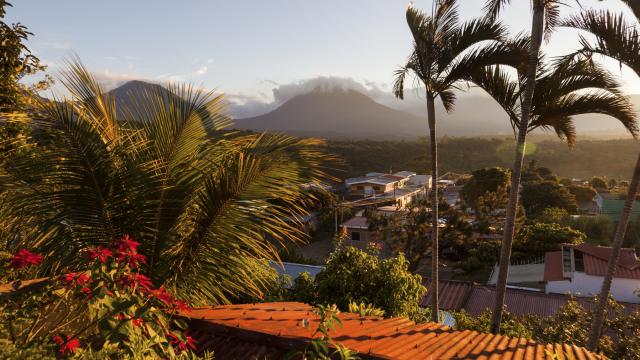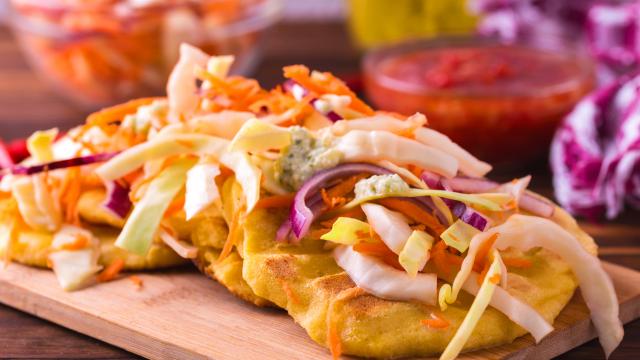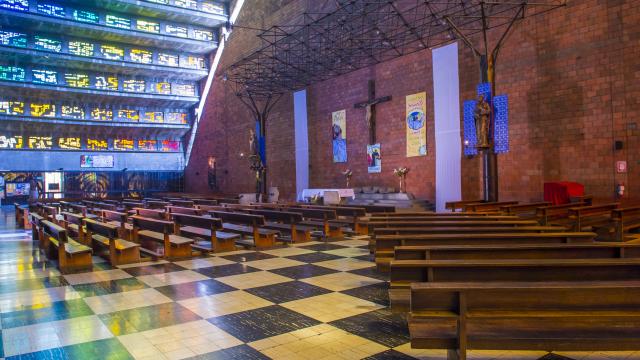El Salvador Tours & Holidays
Small Group Tours & Tailor-Made Holidays

To view images fullscreen please turn device
Overview
Sandwiched between Guatemala to the west, Honduras to the north and the Pacific Ocean to the south, Central America’s smallest country far outstrips its size in terms of natural and cultural highlights. Small and serene it may be, but it is rich in natural beauty, Mayan heritage and a bountiful biodiversity that includes over 500 species of birds and some 1,000 species of butterflies. Memories of its brutal civil war still linger, but El Salvador has made large strides in recent years to ...
Sandwiched between Guatemala to the west, Honduras to the north and the Pacific Ocean to the south, Central America’s smallest country far outstrips its size in terms of natural and cultural highlights. Small and serene it may be, but it is rich in natural beauty, Mayan heritage and a bountiful biodiversity that includes over 500 species of birds and some 1,000 species of butterflies. Memories of its brutal civil war still linger, but El Salvador has made large strides in recent years to present a more vibrant, happy and colourful image to the outside world. Get beneath the skin of this beautiful country and you will find picturesque towns, lively markets and a resilient and hospitable people.
This land of volcanoes, jungles and mountains is filled with passion, history and an enviable array of exciting traditional cuisine. It is also home to captivating Pacific beaches, the spectacular setting of the San Salvador Volcano and some of the most charming colonial cities on the continent. It can also boast some of the most complete Mayan ruins anywhere in the Americas including the Jewel of Cerén, a Maya farming village so remarkably preserved under layers of volcanic ash that it is known today as the "Pompeii of the Americas".
Meet the Expert
Start your journey
Group tours
Travel to El Salvador with like-minded people on one of our small group tours (usually max size 12), featuring knowledgeable local guides and an expert tour leader.
HIGHLIGHTS OF EL SALVADOR
BEST EXPERIENCES

Travel down the ‘route of flowers’
Journey down the ‘ruta de las flores’, stopping off at the various quaint villages dotted along it for a tour of each of their unique, artistic and traditional charms, before eventually arriving at the town where you’ll be staying the night.

Taste El Salvadorean pupusas
The former guerrilla camp Hacienda Los Nacimientos now employs victims of El Salvador’s civil war and is involved in farming organic indigo dye. The also run a fun pupusa making workshop where visitors can learn how to make the nation’s most popular food before eating them.

Admire San Salvador's architecture
El Salvador’s capital is an eclectic mix of colonial remnants and cool 21-st century architecture. As you tour its historic centre, your guide will explain the country’s long and colourful history and how these buildings serve as a reminder of the past.
Discover more
WHEN TO GO
There is no real bad time to go to El Salvador but the months of November to April are generally considered the dry months and the best time to visit. At this time you can expect daytime temperatures to be in the late 20s/early 30s and night time temperatures to be low double figures. It can be fairly humid year-round, although it is significantly more noticeable in November, March and April.
Meet the expert, Richard
Richard is our Latin America expert, who has travelled extensively in the region.
Speak to Richard by calling
1(833) 200-4640
LGBTQIA+ Guidance
When planning to travel as a member of the LGBTQIA+ community, there may be additional things you wish to consider doing, such as:
- Speaking to one of our travel experts for information about travelling in your chosen destination and local attitudes towards members of the LGBTQIA+ community
- Checking the Human Dignity Trust map of countries that criminalise LGBTQIA+ people, which highlights potentially dangerous regions and countries
- Checking the ‘Local laws and customs’ section of your country's official foreign travel advice page
- Looking for any updates for your desired destination on the Human Rights Watch LGBTQIA+ rights page
- Buying a recommended guidebook, as many include an LGBTQIA+ section and advice for LGBTQIA+ travellers
USEFUL INFORMATION
Health and Vaccinations
There are no mandatory immunisations for travellers to El Salvador though you should be up-to-date with Typhoid, Tetanus, Polio and Hepatitis A. Malaria is present in some parts of El Salvador so we recommend you seek advice from your local GP or travel centre as to the correct immunisations and preventative treatments.
Currency
In El Salvador the official unit of currency is the Colon. However, the US Dollar is also in circulation
To check out the latest exchange rate for the places that you are visiting you can go to www.oanda.com.
Cultural Sensitivity
On our tours you will frequently interact with local people, each with their own distinct customs and traditions. We therefore ask you to be considerate and to treat them with respect. Your tour-leaders and guides will always be able to advise you accordingly.
In the churches and cathedrals women should cover their heads with a scarf or hat and also cover their shoulders, while men should take their hats off.
Language & Religion
In El Salvador the major language is Spanish but there are also several Mayan indigenous languages in use. English is spoken in some of the more heavily visited tourist sites but any Spanish you can learn beforehand will be very useful.
Catholicism is the major religion in the country but Evangelism is on the increase. Many Salvadorians combine ancient Mayan beliefs almost seamlessly with Christianity and the result can be a very interesting mix!
Time
El Salvador is 6hrs behind GMT.
A useful website to check the time zone differences is www.worldtimezone.com.
Food and drink
As with much of Central America, El Salvadorian food heavily features tortillas made from maize, however rice and potatoes are also important staples and are available in most places. Frijoles (or black beans) are also predominant and will be found accompanying many dishes. In the more popular areas, a wide variety of international cuisine can be found but there will still be many opportunities to sample traditional local food. Excellent coffee is available everywhere and local beers such as Gallo & Cabro are very drinkable. Imported wine is available in some of the more international establishments but be prepared for this to come at an international price.
